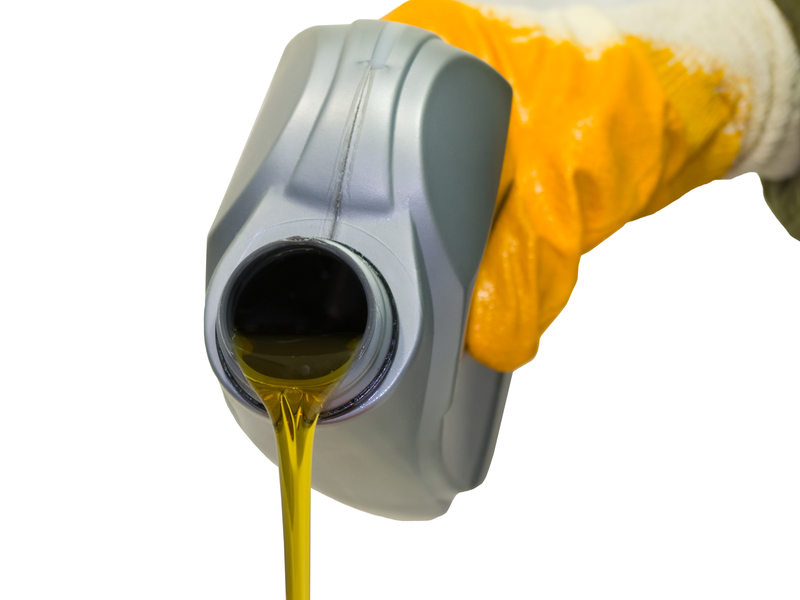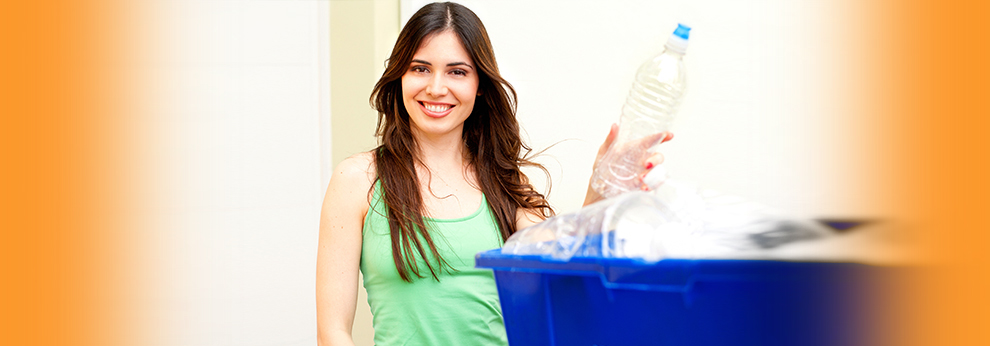Achieve Smarter Recycling Practices with Expert Tips
Posted on 10/09/2025
Achieve Smarter Recycling Practices with Expert Tips
In our ever-evolving world, smarter recycling practices are essential for reducing landfill waste, conserving natural resources, and protecting our environment. Whether you're just starting your recycling journey or looking to refine your understanding, this comprehensive guide will introduce you to expert recycling tips that empower you to make impactful changes at home, work, and in your community.
Understanding the Importance of Smarter Recycling
Before diving into recycling best practices, it's crucial to understand why smarter recycling matters:
- Reduces landfill waste: Thoughtful recycling keeps reusable materials out of landfills.
- Conserves resources: Recycling diminishes the need for raw material extraction.
- Protects wildlife and habitat: Proper waste management prevents pollution of ecosystems.
- Supports the circular economy: Recycled goods become valuable new products.
By making informed choices and adopting expert strategies for smarter recycling, you have a tangible impact on the planet's future.

Expert Tips to Achieve Smarter Recycling Practices
Recycling smarter isn't just about tossing items into a blue bin. It takes knowledge, organization, and consistent action. Below, we share practical tips from recycling experts to elevate your waste management habits.
1. Know What's Accepted Locally
- Check your local recycling guidelines. Each municipality often has its own list of recyclable and non-recyclable materials.
- Visit your town's website or contact waste management authorities for the most recent updates.
- Do not assume an item is recyclable just because it has a recycling symbol.
For instance, many areas do not accept certain plastics, greasy cardboard, or glass. Knowing these rules is critical for achieving smarter recycling practices.
2. Rinse and Clean Recyclables
- Leftover food, liquids, or grease can contaminate entire batches of recyclables, resulting in their disposal as trash.
- Give containers a quick rinse and remove residual material before recycling.
- Allow drying to prevent mold and odor in your bin.
Expert Tip: Paper products soiled with food (like pizza boxes) are not usually recyclable unless the soiled portion is removed.
3. Sort Materials Properly
- Separate by material type: Metals, plastics, paper, and glass are the common recycling streams.
- Keep non-recyclables, like plastic bags and food wrappers, out of your bin unless your facility accepts them.
- If you're in a single-stream recycling area, still avoid including items that could disrupt sorting machines.
Sorting at the source helps recycling processors achieve smarter waste management and increases the chances your materials are truly recycled.
4. Flatten Boxes and Break Down Cardboard
- Maximize space in your recycling bin by flattening cardboard and paperboard.
- This step helps waste management trucks carry more recyclables, making collection more efficient.
- Remove packing materials (e.g., foam, plastic) before recycling.
5. Avoid "Wish-Cycling"
- Do not recycle items hoping they'll get processed - only include items your facility accepts.
- "Wish-cycling" (recycling non-acceptable items) increases contamination and reduces the effectiveness of recycling.
Expert Insight: Wish-cycled items are more likely to end up as landfill waste and can damage recycling machinery.
Achieving Smarter Recycling at Home
Transforming your household's sustainability habits is simpler with a smart recycling plan. Follow these actionable steps:
Designate Clear Bins and Instructions
- Label recycling bins with clear signage and visual aids to avoid confusion.
- Place recycling and compost bins next to trash cans for convenience.
- Explain what items go in each bin to every household member.
Stay Updated with Local Changes
- Local recycling policies can change due to markets and processing technology.
- Subscribe to city notifications or check online for recycling news.
Reduce and Reuse Before Recycling
- Refuse single-use plastics whenever possible.
- Repurpose containers, jars, and packaging for storage or crafts.
- Remember: The best waste is no waste!
Handle Hazardous Waste Responsibly
- Never place batteries, electronics, paints, chemicals, or fluorescent bulbs in your curbside bin.
- Take these items to a proper hazardous waste collection facility or participating retailer.
Compost Organic Waste
- Set up a compost bin or use a municipal composting service for food scraps and yard waste.
- Composting reduces landfill-bound organics and creates rich soil for gardening.
Smarter Recycling in the Workplace
Recycling at work offers a tremendous opportunity to amplify positive environmental impact. Here are key points for successful commercial recycling practices:
Conduct a Waste Audit
- Identify what types and quantities of waste your workplace produces.
- Pinpoint where recycling or reduction programs can make the biggest difference.
Provide Adequate Bins and Training
- Place clearly marked bins in high-traffic areas such as kitchens, meeting rooms, and copy centers.
- Share educational posters and host training sessions so everyone understands best practices.
Pro Tip: Partner with a certified recycling provider who can assist with sorting logistics and pick-up schedules.
The Truth About Commonly Misunderstood Recyclables
1. Plastic Bags and Film
Most curbside programs do not accept plastic bags or film. Instead, return them to dedicated retail drop-off locations.
2. Coffee Cups and Takeout Containers
Many paper cups are lined with plastic or wax and cannot be recycled in most systems. Consider reusable alternatives!
3. Bottle Caps and Lids
Check local guidelines. Some processors prefer caps on bottles; others want them separated. When in doubt, look up your area's requirements.
4. Shredded Paper
Shredded paper fibers are often too small for recycling plants to process effectively. Compost or use dedicated collection days.
5. Foil and Food Wrappers
Items like chip bags, candy wrappers, and shiny packaging cannot be recycled unless explicitly stated.
Smart Recycling Technology and Innovations
Technology is making it easier for individuals and businesses to achieve smarter recycling practices:
- Smart bins with sensors detect contamination and streamline sorting.
- Recycling apps offer instant information on what is recyclable in your area.
- RFID and barcoding systems help track and manage recycled materials at large facilities.
- AI-powered robots are transforming materials recovery at sorting centers.
Embracing these technologies further enhances your recycling efficiency and environmental impact.
How to Encourage Smarter Recycling in Your Community
Building a culture of sustainability requires community engagement. You can:
- Host educational workshops at schools, offices, and neighborhood centers.
- Support or launch community clean-up and recycling drive events.
- Share recycling tips and updates on social media or neighborhood groups.
- Advocate for improved recycling services and broader acceptance of materials.
Your proactive leadership sets a powerful example for others.
Frequently Asked Questions About Smarter Recycling Practices
- Can I recycle bottle caps?
It depends on your local facility. Check with your city or recycling hauler for definitive instructions. - How clean do items need to be?
All items should be free of food, residue, and liquid. A quick rinse typically suffices. - Can I recycle electronics and batteries curbside?
No, these belong with a certified e-waste or hazardous waste program. - Is composting considered recycling?
It's organics recycling! Composting diverts biodegradable waste and creates new soil rather than landfill methane.

The Future of Smarter Recycling Practices
Recycling is not a one-size-fits-all process. As consumer products and packaging evolve, so must our knowledge and habits. Smarter recycling includes staying updated on changes, participating in new programs, and supporting policy improvements.
By following these expert tips and continually improving your own approach, you become an essential part of the global solution to waste and pollution. Remember, every small action counts! Together, we can achieve smarter recycling practices and create a cleaner, healthier world.
Key Takeaways for Achieving Smarter Recycling
- Stay informed on what's recyclable in your area.
- Rinse, sort, and flatten recyclables before disposal.
- Avoid putting non-recyclables in the recycling bin.
- Reduce and reuse before recycling whenever possible.
- Participate in or promote community recycling initiatives.
With dedication, education, and community support, it's possible to achieve smarter recycling practices for a sustainable future. Start today and inspire others to make wise, planet-friendly decisions!
Latest Posts
Expert tips on disposing of old chargers sustainably
Green Living Suggestions for Reducing Plastic Waste
How to Handle Uncollected Waste Bin Services
Innovative Practices to Reduce Household Waste
Harmonize Your Space: Stress Reduction through De-cluttering



